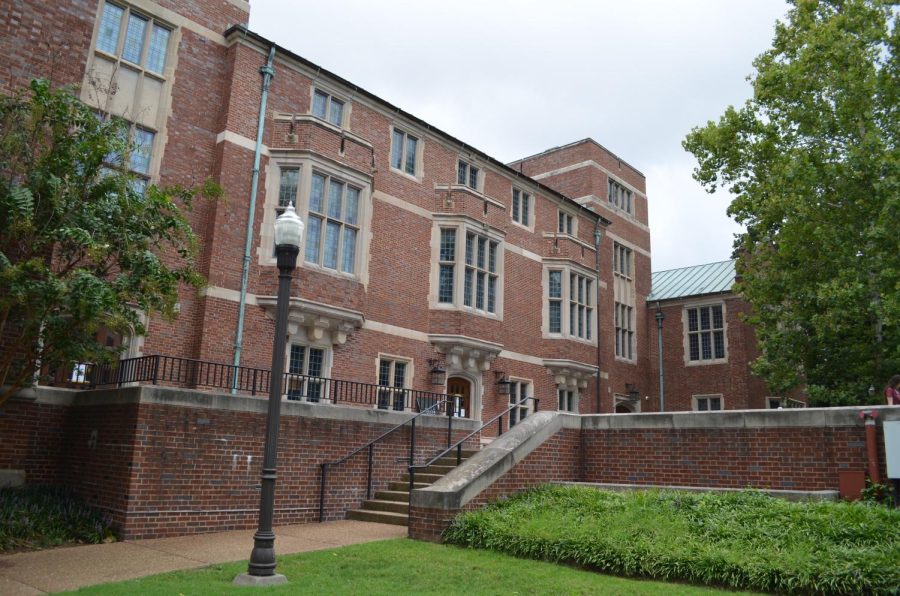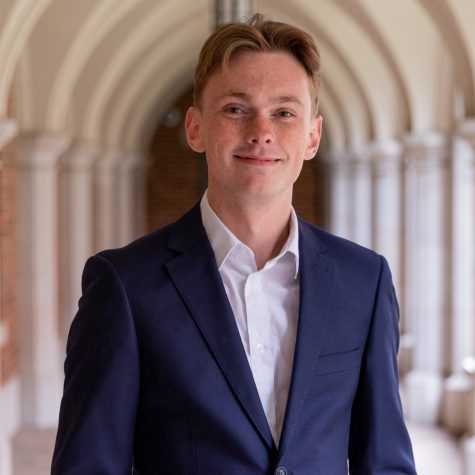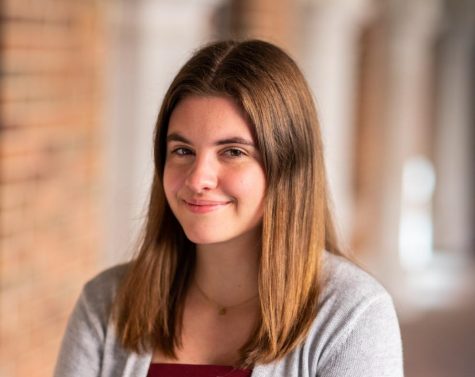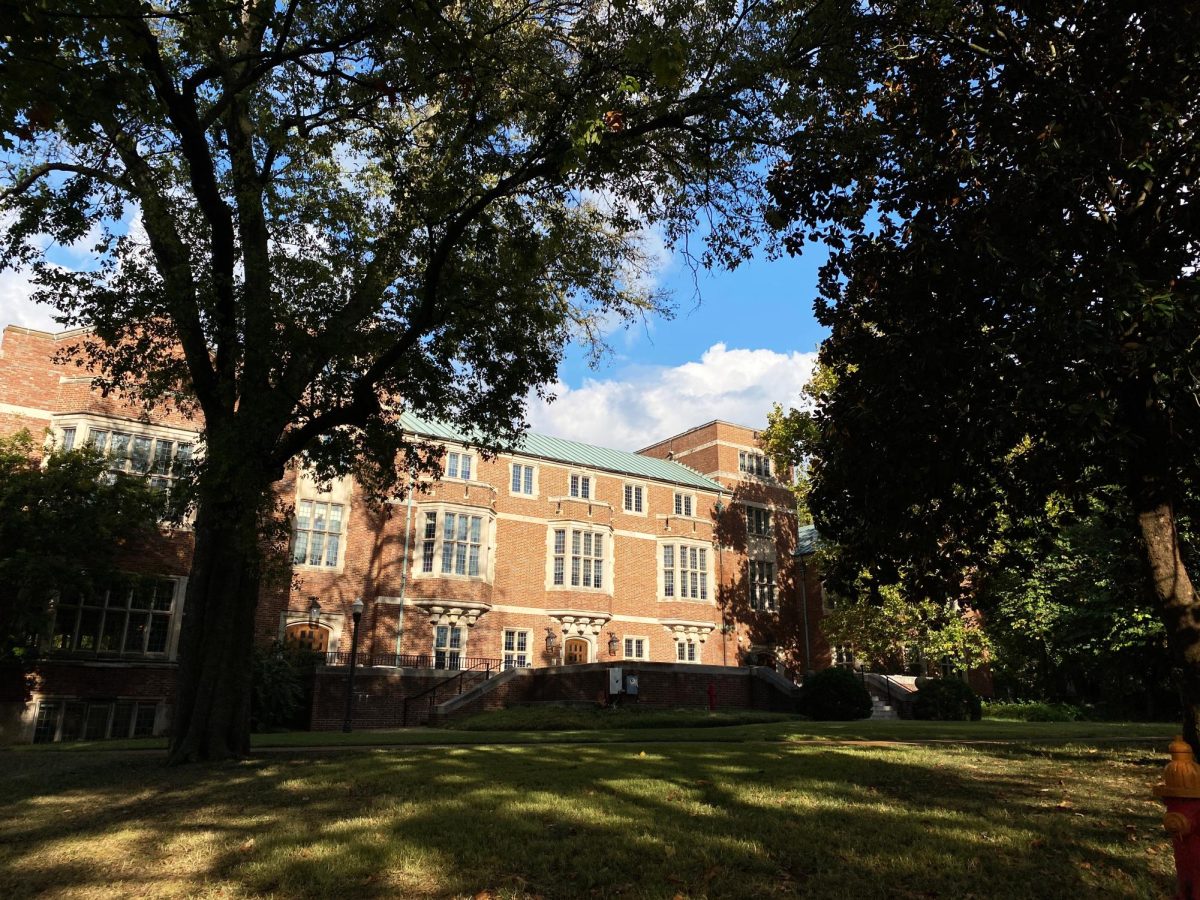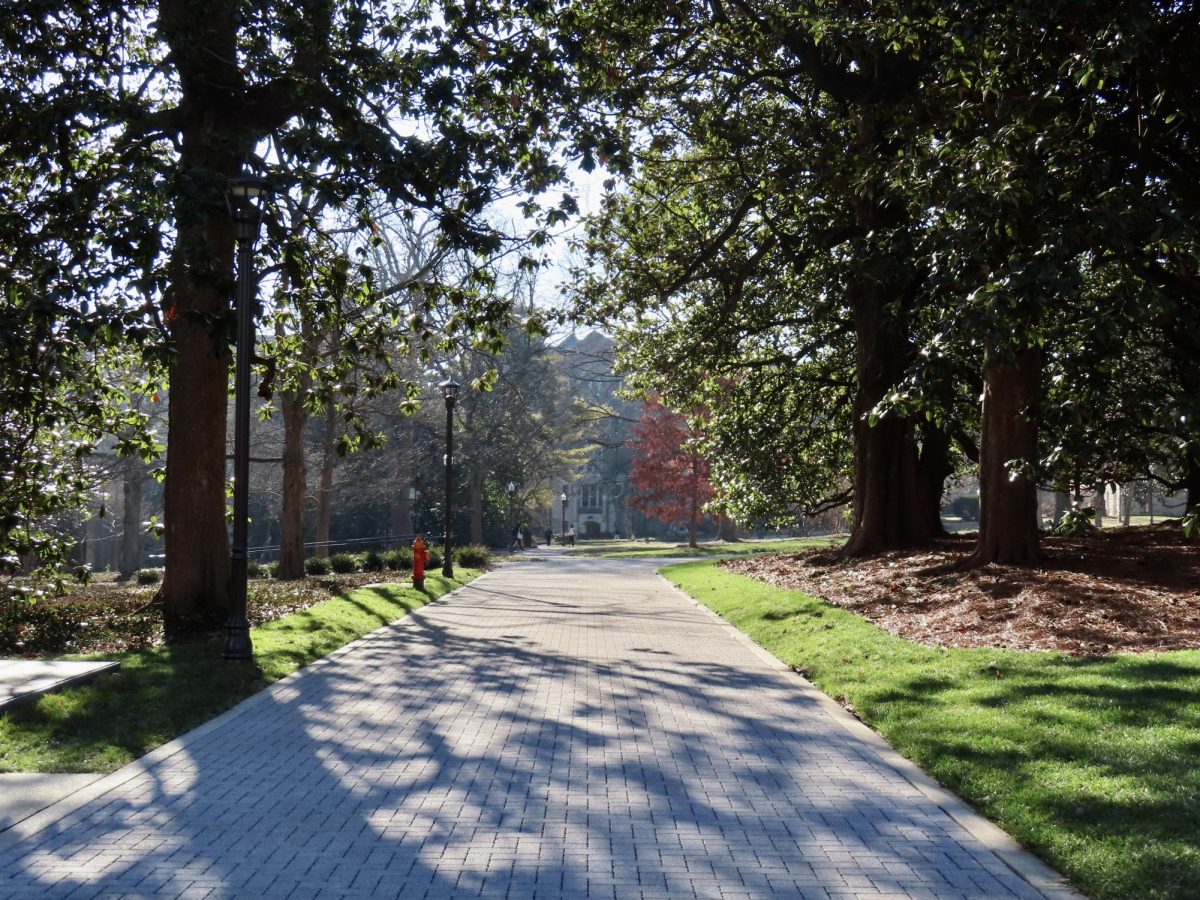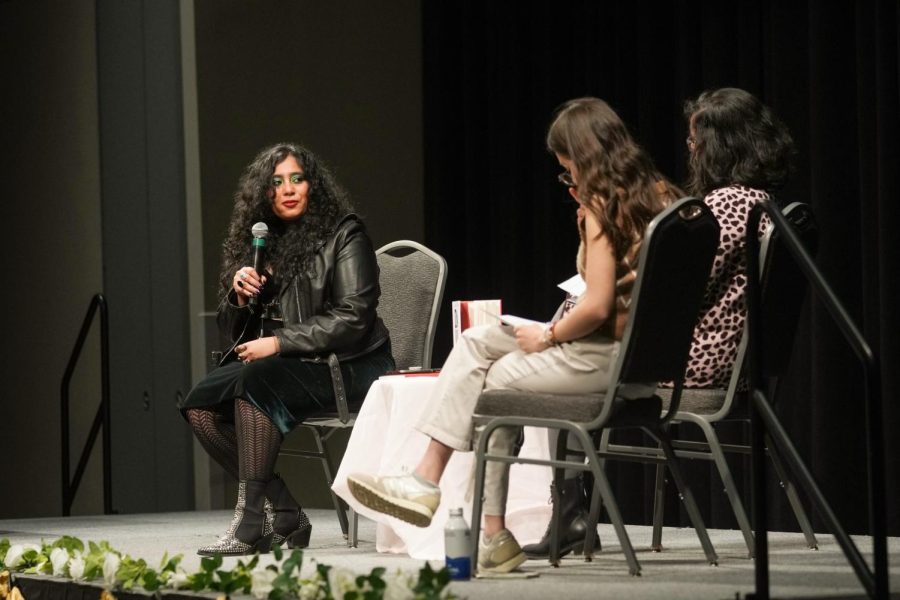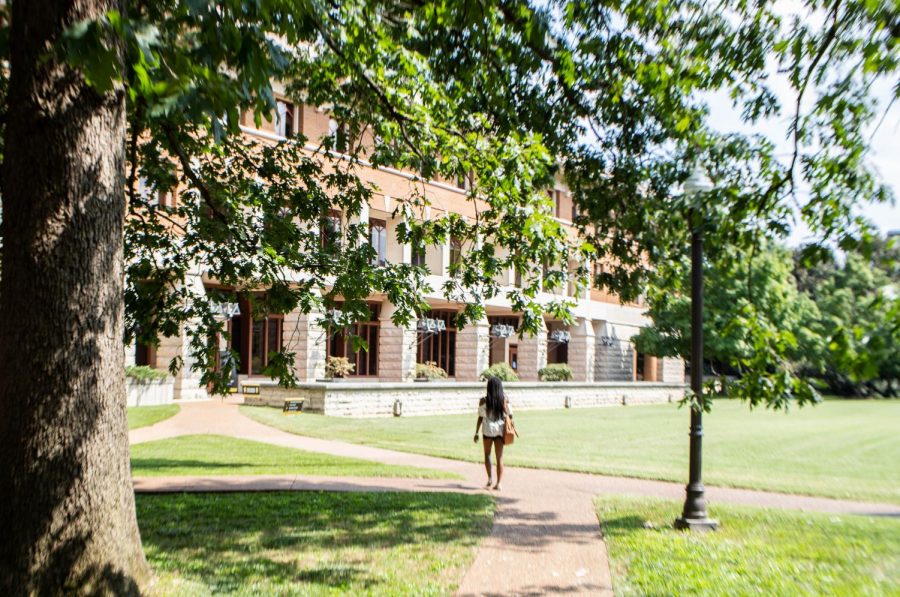During VSG’s student body election from March 27-29, students will be able to vote on three ballot initiatives in addition to a presidential ticket. These initiatives will be the first VSG constitutional amendments up for referendum since 2020.
The proposed amendments to VSG’s constitution will be ratified if a majority of ballots vote to approve them. These amendments would add a land acknowledgement to VSG’s constitution, require VSG to assess student opinions with an app and add 10 Senate seats for members of Multicultural Leadership Council organizations.
VSG Vice President Ari Sasson, a junior who is also campaigning for student body president, sponsored all three. These ballot initiatives were placed on the general student body ballot after receiving votes from at least two-thirds of the Senate.
Land acknowledgement
Resolution S: 22-23-10 proposes adding an acknowledgement between the Preamble and Article I of VSG’s Constitution stating that Vanderbilt University exists on ancestral land taken from Indigenous peoples.
VSG previously passed Resolution S: 19-20-2 in 2021, which affirmed VSG’s support for an official land acknowledgement from the university and encouraged that such a statement be read before all official VSG meetings.
Resolution S: 22-23-10 was proposed by Sasson with Moore College Senator Jayce Pollard, a sophomore, and Athletics Committee Chair Katey Parham, a junior. Pollard serves as a Staff Writer on The Hustler.
The statement closely mirrors a 2021 land acknowledgement written by Tamee Livermont (‘20) and McKalee Steen (‘20), former presidents of Native Americans in Tennessee Interacting at Vanderbilt (NATIVe), which preceded the Indigenous Scholars Organization. ISO previously wrote a letter to the chancellor encouraging the university to adopt a land acknowledgement.
The NATIVe land acknowledgement was included as part of a petition distributed by ISO in October 2022 that called on Vanderbilt administration to publish a similar statement on their website. After the petition garnered 327 signatures from undergraduate, graduate and PhD students, the university stated Vanderbilt does not plan to adopt a land acknowledgment.
The resolution cites the university’s refusal to adopt a land acknowledgement as a motivating factor and notes that peer institutions such as Harvard University, Stanford University, Columbia University, Cornell University, Yale University and Brown University have all published official land acknowledgements. ISO Presidents Annabelle Littlejohn-Bailey, a junior, and Dante Reyna, a sophomore, said they were consulted during the process of drafting the resolution and “fully support” the amendment.
“A land acknowledgement is certainly not the end goal of our work, but it is a meaningful way to start talking about the violence upon which our university was built and to begin seeking justice,” Littlejohn-Bailey said.
Parham, former ISO vice president and member of the Choctaw Nation of Oklahoma, said the amendment intends to remedy the erasure of Native Americans from history.
“A land acknowledgment not only affirms that my identity is acknowledged but also allows conversations surrounding Native American history to begin,” Parham said. “I am optimistic that this is only the beginning for VSG to positively impact Native Students’ experiences at Vanderbilt.”
The resolution passed the Senate on Nov. 9, 2022, by a vote of 20 to 1 with seven senators absent or abstaining. Branscomb Senator Thomas Richardson, a sophomore, was the sole vote against the resolution.
“I strive to represent the views and opinions of my diverse array of Branscomb constituents, especially those who feel that their voices are not being heard elsewhere,” Richardson said.
Formalized collection of student input
Resolution S: 22-23-14 seeks to increase student input in VSG proceedings by adding a third section to Article VI of the Constitution requiring the VSG president, vice president and chief of staff to create, maintain and advertise a formal student input forum. This system would aim to allow students to share ideas about campus issues anonymously and communicate formally with VSG officials and university administrators.
If a particular issue is raised by many students, the vice president would be required to send it to the relevant committee, where a vote would be held on whether VSG should take action on it. The amendment also encourages each step of this process to be made as transparent as possible.
Furthermore, the amendment establishes an annual fall Vanderbilt Student Census, which VSG will use to gauge student opinions on relevant issues on campus.
The resolution, which was sponsored by Sasson and College of Arts and Science Senator Marco Navarro Stanic, a sophomore, was unanimously approved by the Senate. Stanic said he supports the resolution because he thinks it will connect VSG more directly to the student body.
“Most proposals brought by members of VSG branches are proposed because the member’s friends or someone in their surroundings reaches out to them to point out a problem, but there is no systematic way of gathering feedback,” Stanic said. “I think starting a signature collection platform can give students a platform to voice their ideas.”
The resolution cites a Nov. 26, 2022, editorial in The Hustler by sophomore Veronica Tadross suggesting that VSG committees operate mostly on “unofficial student feedback.” The resolution also notes the existence of petition mechanisms sponsored by student government at other institutions, such as Rochester Institute of Technology’s PawPrints, which allows students to write, share and sign petitions on a school-specific forum. The app also facilitates feedback from student government officials and university administrators on popular petitions.
While the amendment does not specify the format of the required feedback mechanism, Sasson said the resolution’s intent was to encourage VSG to use PawPrints, an open-source application.
“With some augmentation to put Vanderbilt [DUO] authentication in it, you can get a submission, and this amendment would require every committee to vote on whether they want to start working on this initiative,” Sasson said. “It’s a no-brainer.”
Sasson stated that the amendment assigns the VSG president and chief of staff the task of overseeing the feedback mechanism to improve transparency between VSG and the student body.
“VSG has a transparency problem,” Sasson said. “By embedding this in the Constitution and tying it to the students that are elected and not appointed, they’re literally required to do this.”
Adding MLC senators
Resolution S: 22-23-15 would add 10 seats to the VSG Senate for representatives from organizations that are members of the MLC by amending Section II of Article IV of the Constitution.
The 10 new seats would increase the size of the Senate from 30 to 40. Candidates for these seats would be nominated by the executive boards of the MLC organizations of which they are members. The seats would also be allocated across different organizations wherever possible. In a situation where fewer than 10 of the 42 eligible organizations nominate a candidate, the remaining seats would be allocated to the remaining candidates with the most votes.
VSG currently has a non-voting MLC representative in the Senate chosen by the executive board of MLC, a position Sasson said will still exist if the amendment passes. Senior Sean Yang, who currently holds the position, said he tends to offer input when it is requested, and that he supports the effort to add voting MLC seats.
“The most innate and personal expressions of identity such as ethnicity, religion, sexual orientation and gender have long been neglected by VSG’s Senate composition,” Yang said. “Facilitating the expression of MLC organizations in the space of VSG is promising.”
The resolution was proposed by Sasson, alongside Diversity and Inclusion Committee Chair Shreya Gupta, a junior, and Blair Senator Ian Stripling-Jenson, a senior. It was cosponsored by nine others, including MLC President Safa Shazad, a junior. Gupta is running with Sasson for VSG vice president.
Sasson said the proposal aims to achieve two goals: offering more support to MLC organizations and increasing engagement in the VSG Senate.
“I hope that when election day comes, members of the Vanderbilt community will come together to support our multicultural communities so that we have more representation in [the] Senate,” Shazad said.
The resolution passed the Senate on March 8, 2023, by a vote of 15 to 4 with 9 senators absent or abstaining. Pollard, along with Peabody Senator Scott Coberly, a junior, and Alumni Lawn Senators Nicolas Becerra Gomez, a sophomore, and Alex Renkis, a senior, voted against the resolution. Gomez and Renkis did not respond to The Hustler’s request for comment.
Coberly said he was concerned about the resolution’s lack of sponsorship from large MLC organizations like SACE, AASA and ALAS, as well as the amendment’s practicality given 40% of existing Senate seats remained vacant this fall.
“We literally don’t have enough senators as is,” Coberly said. “We need to focus on filling the seats we have before adding more seats.”
ALAS President Shelby Kuehnle, a senior, said ALAS would have sponsored the bill, but did not respond to a request for sponsorship before the resolution was presented to the Senate.
“Overall, our Executive Board decided to support the amendment because more MLC representation on VSG is a step in the right direction for getting our organization’s initiatives more support and visibility outside of our sphere of influence,” Kuehnle said.
Sasson said as a Jewish student, his desire to represent the Jewish community was part of his reasoning for running for VSG Senate two years ago. He emphasized the resolution’s goal of increasing student engagement while offering support to MLC organizations and students.
“If we can bring that enthusiasm into the Senate, you get senators who are actually passionate about the constituents that they represent,” Sasson said. “We already get a lot of engagement in student government from the MLC… I can’t see that students are abundantly passionate about where they live over who they are as a person and what their culture is.”

